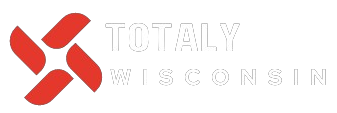On a attractive, heated spring day, step outside and take a moment to ponderous down. Feel the warmth of the sun, listen to the wind rustling in the trees or the birds singing, smell the fresh flowers and look for bees, butterflies and other pollinators visiting your space.
The impact of pollinators in Wisconsin
It is estimated that “about 75% of the world’s flowering plants and about 35% of the world’s food crops depend on animal pollinators,” it says. United States Department of Agriculture (USDA), and spring is the perfect time to learn how you can support them.
The Wisconsin Department of Agriculture, Trade and Consumer Protection (DATCP) states that “a pollinator is any animal that visits flowering plants and transfers pollen from flower to flower, thereby promoting plant reproduction.”
Other pollinators in North America include hummingbirds, flies, beetles, wasps, and in some places even bats. Some of these animals, such as butterflies, accidentally pollinate other plants in search of nectar, while bees intentionally collect pollen as a source of protein for their juvenile, making them very effective pollinators.
Annual production of pollinator-dependent crops in Wisconsin is more than $275 million. These crops include apples, cranberries, cherries, green beans, pickled cucumbers and fresh market fruits and vegetables.
Helping pollinators from home
If you want to aid pollinators in your yard or neighborhood, here are some tips to aid you at home:
Provide water and shelter.
Pollinators need water to drink and unthreatening places to rest, avoid bad weather and spend the winter. You can provide brush and piles of leaves, leave areas of longer grass or patches of bare ground, and provide water, such as a birdbath.
Plant a variety of flowers.
Use many varieties that bloom at different times of the year, especially native varieties, in many different colors. Bees cannot see the color red, so they are attracted to blue, white and yellow flowers. However, butterflies are attracted to the colors orange, red and yellow.
Practice responsible pesticide apply.
If you must apply pesticides, be sure to read and follow label directions carefully, avoid spraying flowering plants or other areas popular for pollinators, and vary the types of pesticides to aid avoid pesticide resistance.
Wisconsin Star: Honey Bee

Swarming season has arrived for our most renowned pollinator, the honey bee. When a colony outgrows its home, about half of the bees, along with the up-to-date queen, will go in search of a up-to-date home, creating their own colony.
The “swarm” and its queen will gather in a space outside the hive, such as a tree, bush or other structure, while the scout bees go in search of a up-to-date home. While a giant pile of honey bees may be intimidating at first, these swarms are usually quite docile and do not pose a threat to you or your family. If a swarm comes to you, visit wihoney.org/find-local-honey to find a beekeeper who can come and collect the swarm and rehome it.
As I travel around Wisconsin visiting different classrooms in our state, I love sharing more about our precious pollinators who aid us grow the diverse range of foods that Wisconsin agriculture is known for. Honey bees and many other pollinator species aid keep Wisconsin agriculture robust and lively!
Agriculture in Wisconsin and around the world would be very different without the aid of our pollinators. Visit your local University of Wisconsin Extension Agency office, talk to or contact your local beekeeper DATCP apiary program for more information on how you can aid our pollinators thrive.


